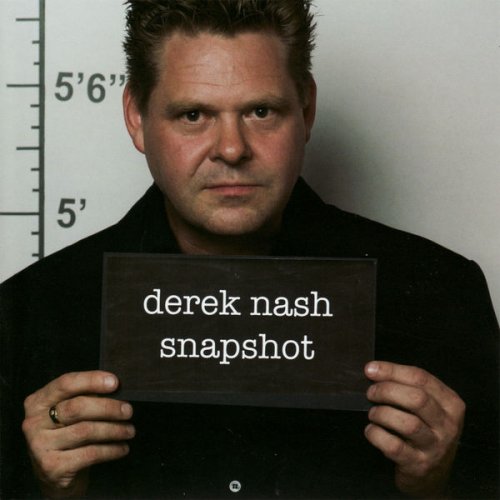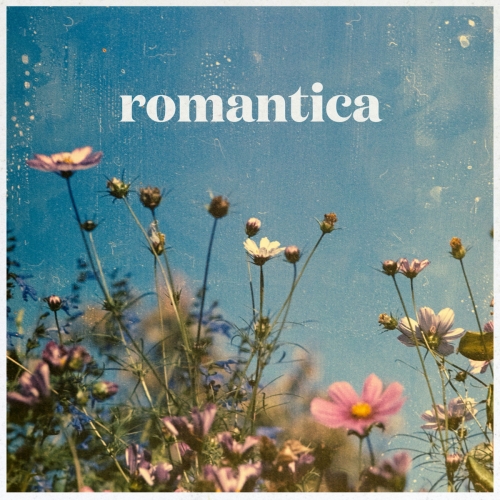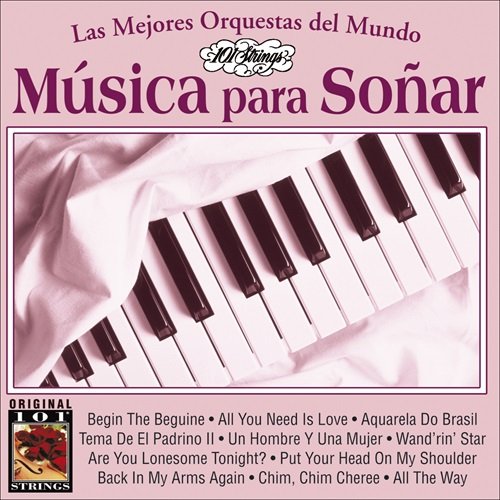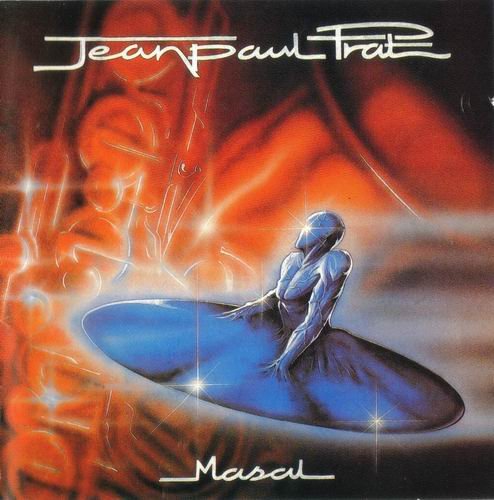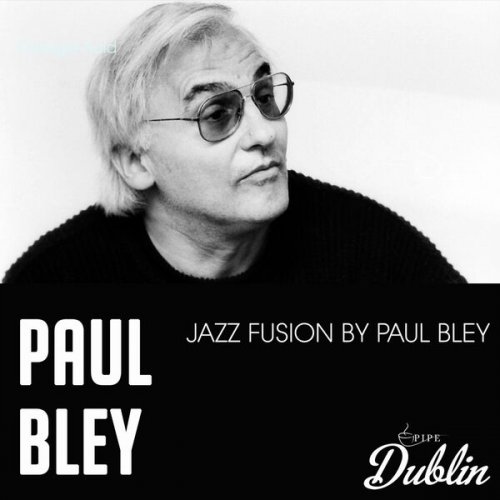Ricercar Consort & Philippe Pierlot - J.S. Bach: Consolatio (2018) [Hi-Res]
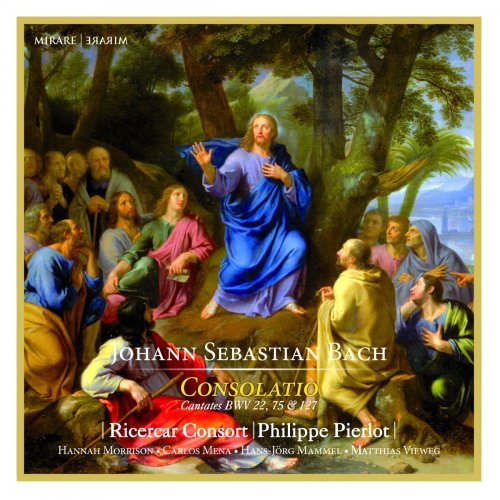
Artist: Ricercar Consort, Philippe Pierlot
Title: J.S. Bach: Consolatio
Year Of Release: 2018
Label: Mirare
Genre: Classical, Vocal
Quality: flac lossless / flac 24bits - 96.0kHz +Booklet
Total Time: 01:06:14
Total Size: 362 mb / 1.29 gb
WebSite: Album Preview
TracklistTitle: J.S. Bach: Consolatio
Year Of Release: 2018
Label: Mirare
Genre: Classical, Vocal
Quality: flac lossless / flac 24bits - 96.0kHz +Booklet
Total Time: 01:06:14
Total Size: 362 mb / 1.29 gb
WebSite: Album Preview
---------
01. Cantata, BWV 75 "Die Elenden sollen essen", Prima parte: I. Chorus. Die Elenden sollen essen
02. Cantata, BWV 75 "Die Elenden sollen essen", Prima parte: II. Recitativo. Was hilft des Purpurs Majestät (Bass)
03. Cantata, BWV 75 "Die Elenden sollen essen", Prima parte: III. Aria. Mein Jesus soll mein alles sein (Tenor)
04. IV. Recitativo. Gott stürzet und erhöhet (Tenor)
05. Cantata, BWV 75 "Die Elenden sollen essen", Prima parte: V. Aria. Ich nehme mein Leiden mit Freuden auf mich (Soprano)
06. Cantata, BWV 75 "Die Elenden sollen essen", Prima parte: VI. Recitativo. Indes schenkt Gott ein gut Gewissen
07. Cantata, BWV 75 "Die Elenden sollen essen", Prima parte: VII. Chorale. Was Gott tut, das ist wohlgetan
08. Cantata, Bwv 75 "Die Elenden Sollen Essen", Seconda Parte: VIII. Sinfonia
09. Cantata, BWV 75 "Die Elenden sollen essen", Seconda parte: IX. Recitativo. Nur eines kränkt ein christliches Gemüte (Alto)
10. Cantata, BWV 75 "Die Elenden sollen essen", Seconda parte: X. Aria. Jesus macht mich geistlich reich (Alto)
11. Cantata, BWV 75 "Die Elenden sollen essen", Seconda parte: XI. Recitativo. Wer nur in Jesu bleibt (Bass)
12. Cantata, BWV 75 "Die Elenden sollen essen", Seconda parte: XII. Aria. Mein Herze glaubt und liebt (Tenor)
13. Cantata, Bwv 75 "Die Elenden Sollen Essen", Seconda Parte: XIII. Recitativo. O Armut, Der Kein Reichtum Gleicht
14. Cantata, BWV 75 "Die Elenden sollen essen", Seconda parte: XIV. Chorale. Was Gott tut, das ist wohlgetan
15. Cantata, BWV 22 "Jesus nahm zu sich die Zwölfe": I. Concerto. Jesu nahm zu sich die Zwölfe (Tenor, Bass)
16. Cantata, BWV 22 "Jesus nahm zu sich die Zwölfe": II. Aria. Mein Jesu, ziehe mich nach dir (Alto)
17. Cantata, BWV 22 "Jesus nahm zu sich die Zwölfe": III. Recitativo. Mein Jesu, ziehe mich, so werd ich laufen (Bass)
18. Cantata, BWV 22 "Jesus nahm zu sich die Zwölfe": IV. Aria. Mein alles in allem, mein ewiges Gut (Tenor)
19. Cantata, BWV 22 "Jesus nahm zu sich die Zwölfe": V. Chorale. Ertöt uns durch dein Güte
20. Cantata, BWV 127 "Herr Jesu Christ, wahr’ Mensch und Gott": I. Chorus. Herr Jesu Christ, wahr’ Mensch und Gott
21. Cantata, BWV 127 "Herr Jesu Christ, wahr’ Mensch und Gott": II. Recitativo. Wenn alles sich zur letzten Zeit entsetzet (Tenor)
22. Cantata, BWV 127 "Herr Jesu Christ, wahr’ Mensch und Gott": III. Aria. Die Seele ruht in Jesu Händen (Soprano)
23. Cantata, BWV 127 "Herr Jesu Christ, wahr’ Mensch und Gott": IV. Recitativo. Wenn einstens die Posaunen schallen (Bass)
24. Cantata, BWV 127 "Herr Jesu Christ, wahr’ Mensch und Gott": V. Chorale. Ach Herr, vergib all unsre Schuld
The Ricercar Consort is an ensemble of instrumentalists devoted to repertory largely from the seventeenth century. It is generally considered one of the foremost chamber groups in the genre of Baroque music. Active for about three decades, it has already made over 50 recordings and given countless concerts across the globe. The ensemble consists of about six members, though the number can vary to accommodate performance of small and large works. Many of its concerts and recordings, for example, involve singers, while others are strictly instrumental. The group's name derives is Italian and pertains to a type of sixteenth and seventeenth century genre of instrumental music, typically contrapuntal and often involving the organ. While the repertory has embraced mostly Baroque-era music, the Ricercar Consort has ventured into the Classical period and received special praise for its complete Haydn Baryton Octets. It has recorded for its own label, Ricercar, and for the lesser known French label Mirare.
The Ricercar Consort was formed in Belgium in 1980 along with the Ricercar label. The director of the ensemble is Philippe Pierlot, who is accomplished on the viola da gamba and baryton, the instrument on which he was the soloist in the ensemble's acclaimed Haydn recordings. Guest artists regularly appearing with the group include Henri Ledroit (countertenor), Max van Egmond (baritone), and Carlos Mena (countertenor).
Among the consort's most important early recordings was its 1983 disc on Ricercar of cantatas and motets by Johann Christoph and Johann Michael Bach. Over the years the consort made many successful recordings of music by Bach family members, most notably of works by J.S. Bach. In 1985 the Ricercar Consort made its first international tour, giving a series of successful performances of J.S. Bach's Musikalisches Opfer. By the early '90s, the ensemble was in demand across Europe, making notable appearances at the most prestigious early music festivals, including the popular French Festival de Saintes and the Festival des Flandres.
By the end of the 1990s the ensemble was taking on larger works: its 1999-2000 season, for example, included performances of Marais' Sémélé and Alessandro Scarlatti's St. John Passion.
In 2002 the Ricercar Consort received the prestigious French Diapason d'Or award for its CD De Aeternitate with countertenor Carlos Mena. Among the consort's recordings is the 2008 Mirare CD Stabat Mater, which contains works by several composers, including Bertali, Sances, Leopold I, and Schmelzer.
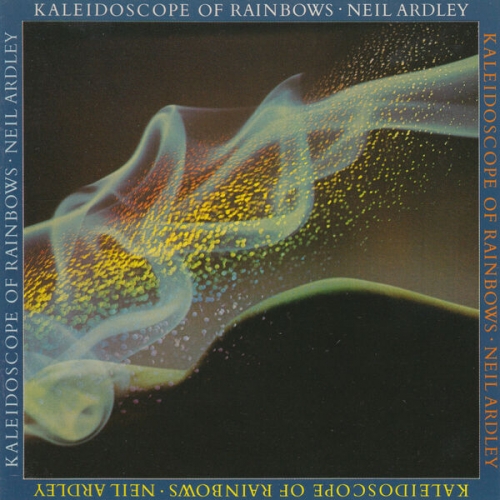
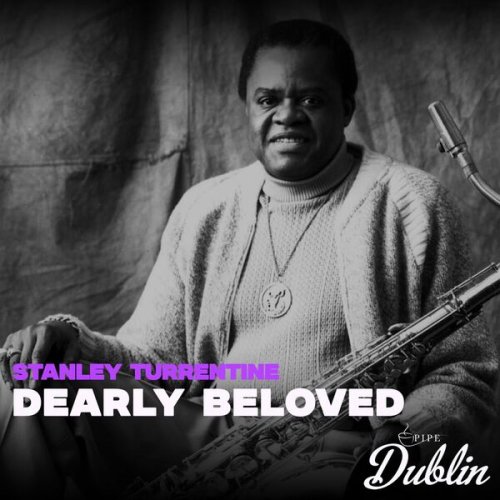
![Dave Liebman, Billy Hart & Adam Rudolph - Beingness (2026) [Hi-Res] Dave Liebman, Billy Hart & Adam Rudolph - Beingness (2026) [Hi-Res]](https://www.dibpic.com/uploads/posts/2026-02/1770210118_oyk954khn2fqv_600.jpg)
